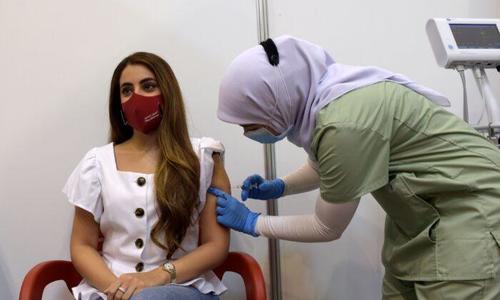By Jack Phillips of The Epoch Times

The U.S. Food and Drug Administration (FDA) added a warning about the risk of developing heart inflammation to information about the Moderna and Pfizer COVID-19 vaccines.
On June 25, the agency said that it would add revisions to its patient and provider fact sheets about the “increased risks of myocarditis (inflammation of the heart muscle) and pericarditis (inflammation of the tissue surrounding the heart) following vaccination” using the Pfizer or Moderna COVID-19 shots. The Pfizer or Moderna vaccines use mRNA technology and require two doses, whereas the vaccine made by Johnson & Johnson uses an adenovirus and requires a single dose.
Still, health officials have said that the risks of developing heart inflammation are outweighed by the vaccine’s benefits.
“The risk of myocarditis and pericarditis appears to be very low given the number of vaccine doses that have been administered,” Janet Woodcock, the acting FDA commissioner, said in a statement last week. “The benefits of COVID-19 vaccination continue to outweigh the risks, given the risk of COVID-19 diseases and related, potentially severe, complications.”
The warning issued by the FDA says that there may be increased risks “particularly following the second dose and with [the] onset of symptoms within a few days after vaccination.”
“Additionally, the Fact Sheets for Recipients and Caregivers for these vaccines note that vaccine recipients should seek medical attention right away if they have chest pain, shortness of breath, or feelings of having a fast-beating, fluttering, or pounding heart after vaccination,” the agency said. “The FDA and CDC are monitoring the reports, collecting more information, and will follow-up to assess longer-term outcomes over several months.”
COVID-19 is the disease caused by the CCP (Chinese Communist Party) virus.
There have been more than 1,200 cases of pericarditis or myocarditis in individuals who are aged 30 or younger who have received the vaccine doses, according to the latest CDC findings last week.
The case rate, based on submissions to the FDA- and CDC-operated Vaccine Adverse Event Reporting System, is higher than expected in young males.
For males between the ages of 12 and 17, the expected number of cases of heart inflammation following dose one using a 21-day window were two to 21. The observed number of cases was 32 through June 11. For males between the age of 18 and 24, the expected number of cases using the same parameters were three to 34. The observed number of cases was 47.
Representatives for Pfizer and Moderna didn’t respond to requests for comment by press time.
No comments:
Post a Comment